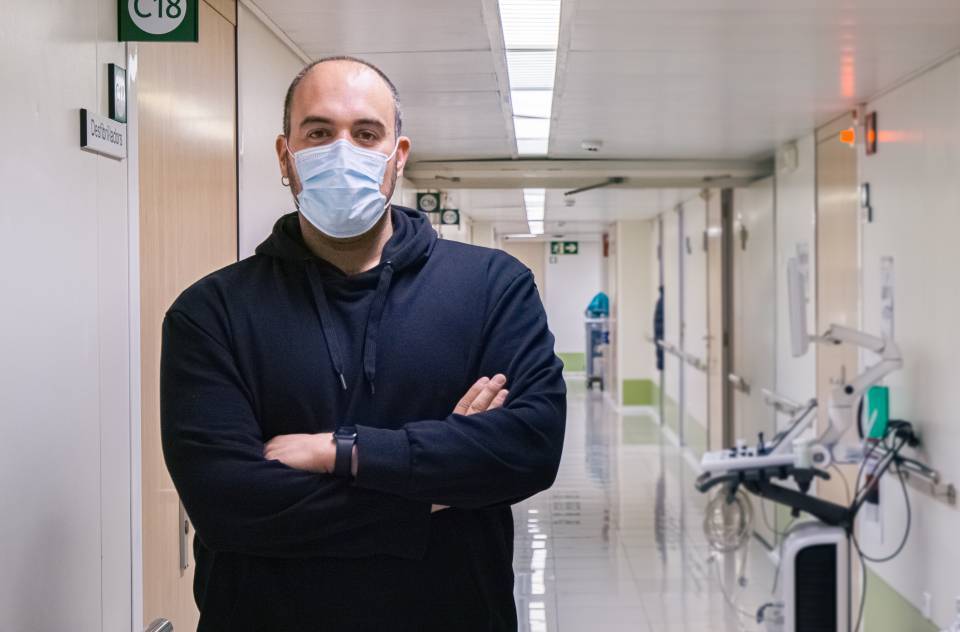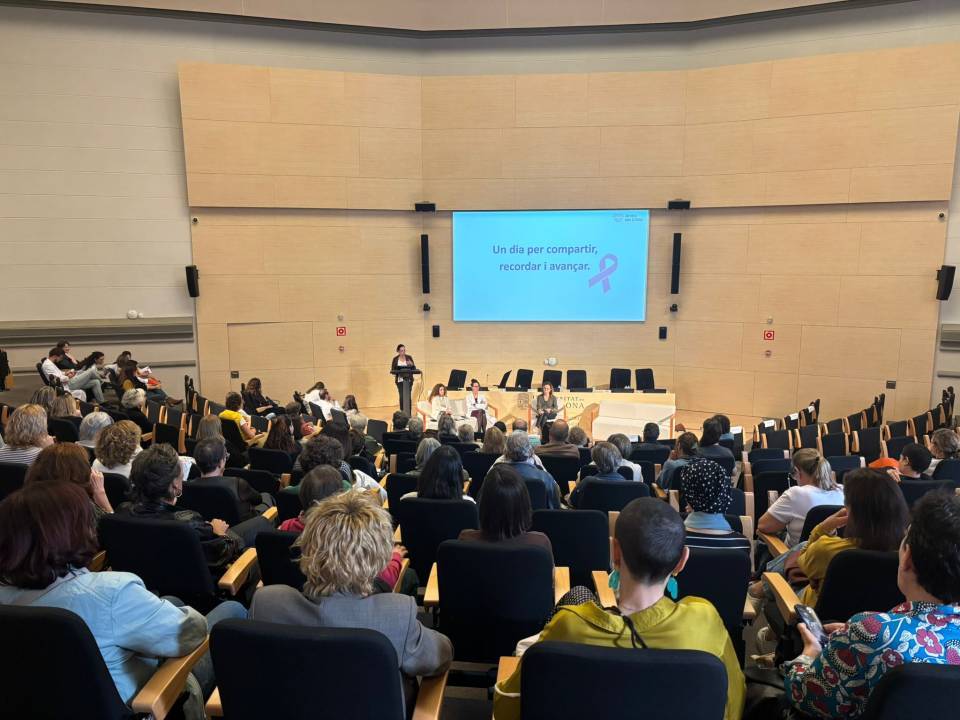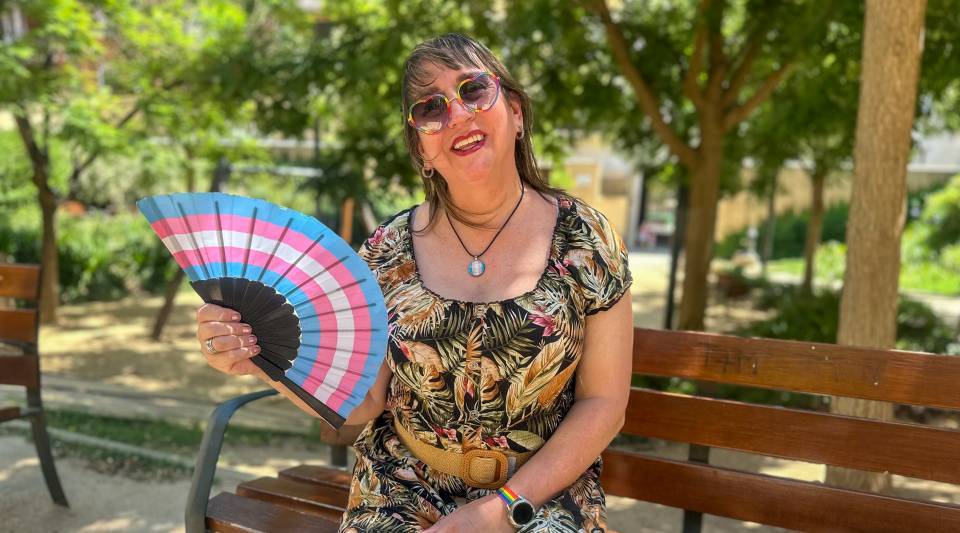Dr. Elena Arbelo, cardiologist at the Hospital Clínic is Miquel’s doctor and she admits that "the key to these types of rare disease is knowing what causes them, and they require a great deal of research and specialization". Dr. Arbelo stresses that, “it is essential to work in close coordination with all the disciplines involved, in order to obtain a good diagnosis and provide the best treatment”.
“When I feel that my heart might stop or that I’m about to faint, I lie down on the ground so as to avoid falling and hurting myself”, explains Miquel with resignation. He has had cardiac arrests standing up and lying down. However, when he is lying down and has a sudden cardiac arrest, he doesn’t faint and "can feel the electrical shock perfectly well and it is very unpleasant”. It’s like a firework exploding inside me”, he says. After each sudden cardiac arrest, Miquel has to go to hospital to check that everything has worked properly.
Miquel has had to learn to live with this rare heart disease. “The first few years after the first arrest were complicated and, for example, I would leave the door open when I went to the toilet. I couldn’t be alone. I have gradually overcome this”, he explains. The psychological and psychiatric treatment that Miquel has received since suffering from this illness has been of key importance in allowing him to cope positively with his situation.
Today, Miquel’s life "is calm” and he avoids “getting angry with people" He doesn’t want to get nervous or worked up, he wants to be happy, be close to his current partner and his four-year-old daughter, whom he takes to school every morning. “My family and friends have been of key importance in stopping me falling apart”, he confesses, and he has felt close to his parents. “They have had a difficult time, but I know they have to put on a brave face". His father, Ramon, admits that this has changed their life and that they have “learnt to value what is important and what is not”.
After 8 years, the team monitoring Miquel reached the conclusion that he had arrhythmogenic cardiomyopathy, a primary heart muscle disorder. Although it predominantly affects the right ventricle (the right ventricle becomes enlarged), it can sometimes affect the left ventricle or even both of them. Dr. Elena Arbelo stresses that “Miquel’s case is an example for everyone: his strength, predisposition, positive attitude and his family’s support have been of key importance in getting us to where we are".
Miquel concludes that, “we can’t spend the whole day thinking about what might happen. We have to take each day as it comes and try to be as happy as possible with the people we love”.
International recognition as a referral centre for rare heart diseases
The Hospital Clínic de Barcelona was recognized as a referral centre for rare heart diseases (ERN Guard-Heart). The European Reference Networks (ERNs) for rare diseases are part of an initiative by the European Commission to connect healthcare centres that are highly specialized in certain rare diseases. Among other things, the hospital's accreditations recognize the clinical experience of the units, their capacity for research, the exchange of information and networking, as well as the hospital's installations and its professionals' qualifications.
There has been a steady increase in the number of outpatient visits to the Hospital Clínic Cardiogenetics Unit over the last three years. Through a multidisciplinary team, made up of cardiologists, clinical and molecular geneticists, it aims to diagnose, stratify risk and offer appropriate and timely management of clinical manifestations in patients or asymptomatic carriers of pathogenic mutations. In 2021, there were 1,358 consultations, 358 of which were first assessments. In total, one in every 116 patients received a new diagnosis of inherited heart disease.
The aim of this programme is to focus on the patients and their families, providing excellent, global and integrated treatment, not only to avoid sudden cardiac arrest, but also to try to prevent the appearance of symptoms and, moreover, to improve the experience and quality of life for these families. The team is supported by geneticists, experts in cardiac imaging, cardiac electrophysiologists, cardiac and thoracic surgeons, gynaecologists/obstetricians, neurologists, psychiatrists, psychologists and pathologists. This comprehensive approach allows for the integrated management of patients and families.




